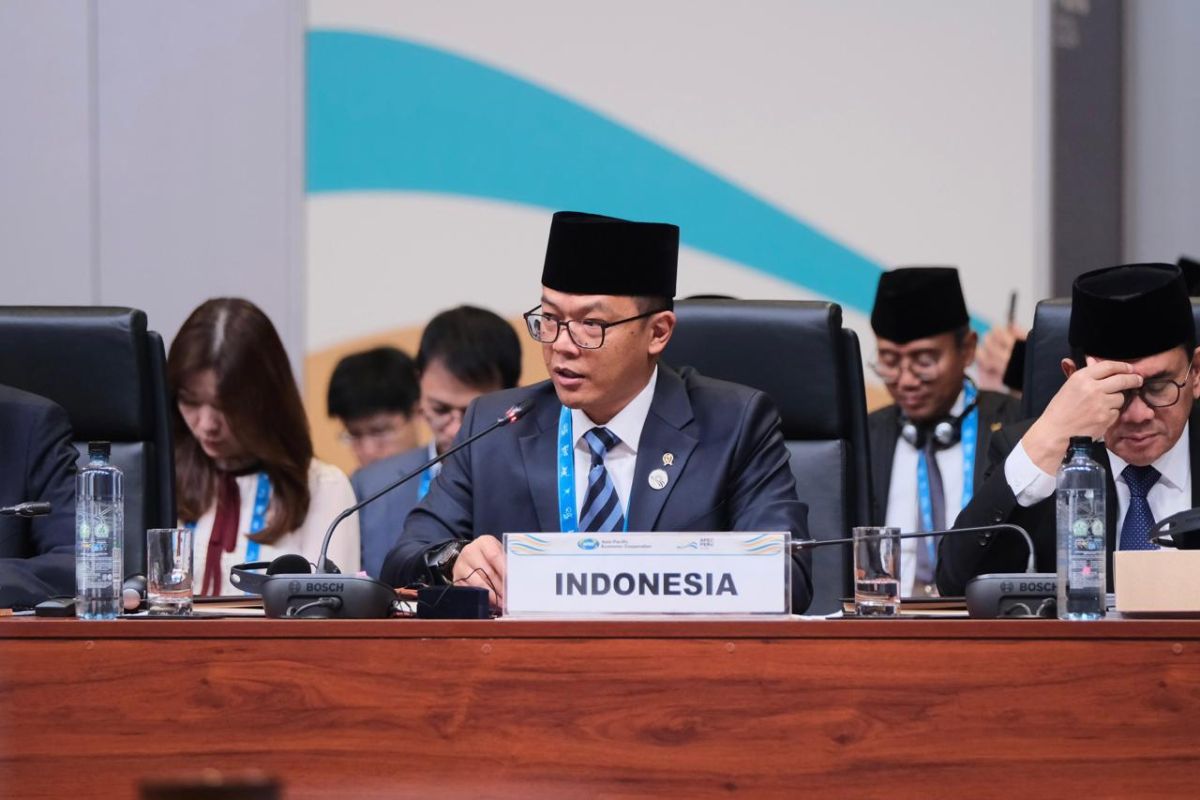Headline: Indonesian FM Sugiono Champions Digital Innovation at APEC
Jakarta, Indonesia – At the APEC Ministerial Meeting held in Lima, Peru, on November 14, Indonesian Foreign Minister Retno Marsudi Sugiono underscored the critical role of innovation and digitalization as drivers of economic transformation for Indonesia and the wider Asia-Pacific region. In a statement issued by the Foreign Affairs Ministry, Sugiono articulated a vision where digital technologies become essential tools to bridge socio-economic divides and facilitate Indonesia’s ambition of becoming one of the world’s top five economies by 2045.
Emphasizing the Importance of Digital Infrastructure
In his remarks, Sugiono stressed that robust digital infrastructure serves as the foundation for equitable economic growth. "Without equitable access to digital technologies, economic opportunities remain concentrated among the privileged, which will deepen inequalities," he said. He pointed out that over 1.7 billion people in the Asia-Pacific lack internet access, with nearly 70% of workers in low- and middle-income economies lacking essential digital skills. This status quo poses a significant barrier to participating in the emerging digital economy.
Indonesia’s Digital Village Initiative
One of the flagship initiatives highlighted by Sugiono was Indonesia’s Digital Village Initiative. This program aims to equip rural communities with necessary skills and tools to thrive in the digital economy. "Such a program can bridge the digital divide by ensuring that vulnerable and marginalized groups can access opportunities in the formal economy," he stated, reiterating the importance of upskilling and reskilling human resources.
Addressing Gender Inequality in Digital Access
Sugiono also brought attention to the glaring gender disparities in digital access. According to data, women in the Asia-Pacific are 20% less likely to have internet access, a gap that exacerbates social and economic inequalities. To combat this issue, Indonesia is advocating for gender-responsive policies and targeted support measures. “Providing affordable access to devices, skills training, and inclusive strategies to integrate women into the digital workforce… will strengthen the overall economic resilience of communities in Indonesia,” he remarked.
Proposals for a More Inclusive Digital Economy
Sugiono’s emphasis on inclusive economic strategies extends to various initiatives that support small businesses and informal workers. These measures include:
- Enhanced access to financing for micro and small businesses.
- Entrepreneurship training programs focused on building essential skills.
- Social security protections for informal workers to provide them with stability.
By implementing these strategies, Sugiono believes Indonesia can unlock immense potential for growth and resilience in the digital landscape.
Bridging the Digital Divide: A Regional Challenge
The paradox Sugiono highlighted—a significant technological advancement alongside a persistent digital divide—poses an urgent challenge for policymakers in the Asia-Pacific. "The digital divide looms large, threatening to leave millions behind," he cautioned. He reiterated that bridging this divide is not merely a technological challenge but a moral imperative, stating, "We must ensure that Asia-Pacific can be a major player in the digital economy."
Call for Regional Cooperation
Sugiono called for unity among APEC member countries to address these challenges collectively. By coordinating efforts and sharing best practices, countries within the region can facilitate a more inclusive transition to the digital economy. “Let us ensure no one is left behind as we embrace the digital era and strive to become global leaders in the digital economy,” he concluded.
The Path Ahead for Indonesia and the Asia-Pacific
The initiatives proposed by Sugiono during the APEC Ministerial Meeting reflect a growing recognition that sustainable economic growth in the digital age hinges on inclusivity and equitable access to technology. As Indonesia gears up to realize its ambitious goals, it remains essential for the nation, and the region at large, to contemplate solutions that can effectively bridge existing divides and catalyze success for all citizens.
In what ways do you think Indonesia’s strategies could influence other APEC member nations in bridging their own digital divides? Share your thoughts in the comments below!
Related news:
- Indonesia’s Prabowo shares optimistic view on global common good
- Prabowo, Boluarte hold talks on economic agreements, anti-drug efforts
For more insights on digital transformation and economic policies, visit our Business Insights section.
Explore more about the International Telecommunication Union (ITU) for comprehensive data on digital access and skills across the globe.
This article contains information drawn from official sources and statistics validated by international organizations. For further queries and detailed perspectives on Indonesia’s initiatives, kindly reach out through our contact page.

